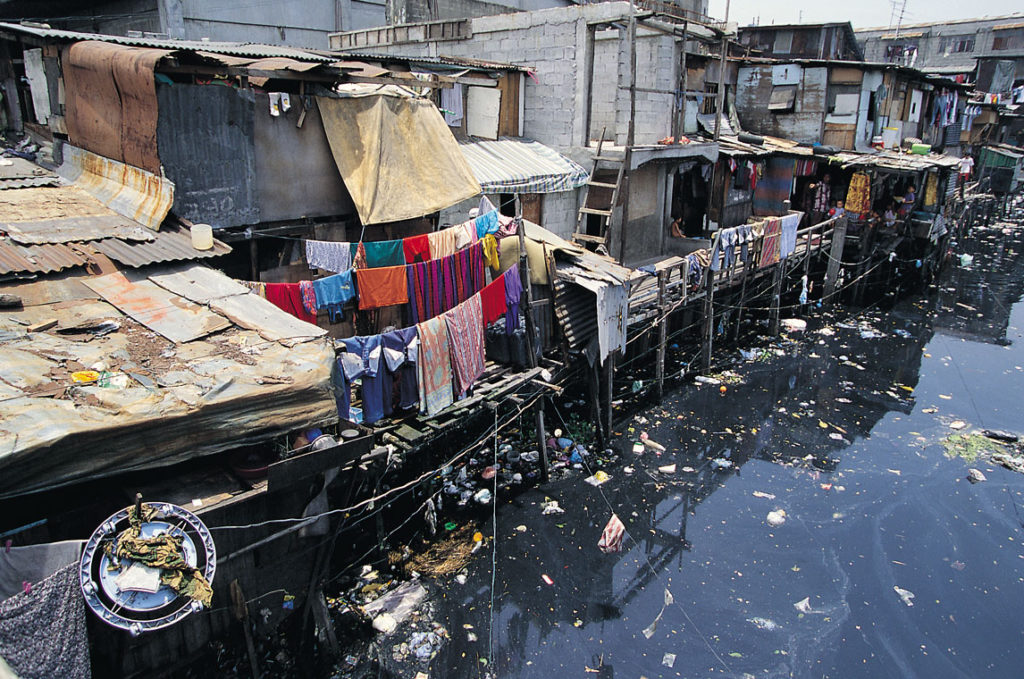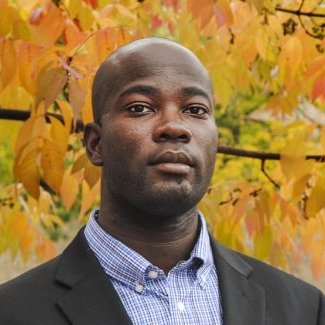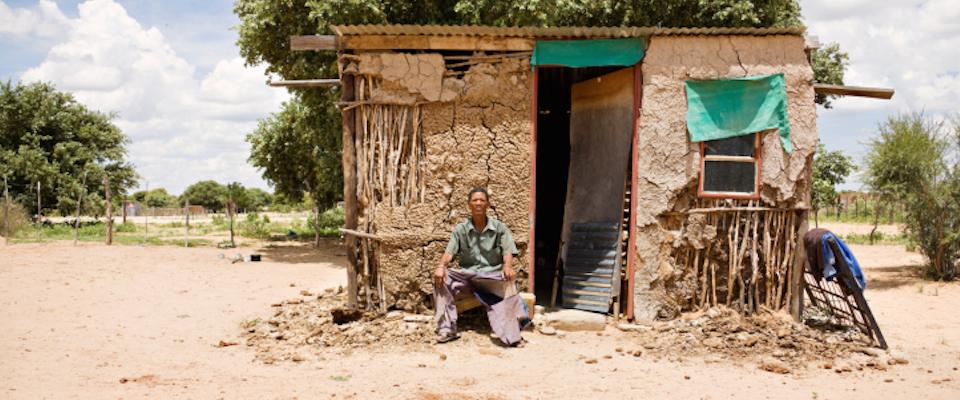There’s no getting around the veracity of Matthew 26:11. “…For ye have the poor always with you,” as the King James Version has it. But as long as there has been poverty, there have also been decent souls trying to eliminate it.
So how are they doing? Not very well. According to the World Food Programme, 805 million people don’t have enough to eat. World Bank figures confirm that more than 3 billion people—or somewhat less than half the total planetary population–eke by on less than $2.50 a day, while almost 1.5 billion subsist on less than $1.25 a day. Fully 80 percent of the planet’s people get by on less than $10 a day. In other words, it’s not so much a case of the poor always being with us. Considered from a global perspective, the poor are us. Most human beings live in poverty, and for many the situation is utterly desperate.
So why haven’t First World do-gooders made more of a dent? Billions of dollars are expended each year on alleviating poverty, environmental degradation and general social injustice. Vast resources, from food to high technology, are thrown at the problem, and nothing seems to stick.
“There’s nothing wrong with idealism,” says Kadir, “but it’s probably better to learn about the limitations the world imposes when you’re young than when you’re in your sixties.”
It may well be that our error is in the fundamental way we perceive the poverty challenge. At least that’s the case being advanced by some specialists at UC Berkeley who are calling for a reset in our approaches to global poverty. We tend to think of fixes in terms of technology and money, says Khalid Kadir, a UC Berkeley lecturer in the International and Area Studies Teaching Program and the Department of Civil and Environmental Engineering. But more often than not, the bottleneck in getting aid to people who need it isn’t due to a paucity of food or funding. It’s about cultural, social and political constraints.
“You can’t address poverty without first addressing local political structures,” says Kadir, who is also an associate of the university’s Blum Center for Developing Economies. “To a very large degree, that determines who gets what, regardless of the amount of money provided by either governments or NGOs.”

In the most egregious of cases, the problem consists of simple corruption. Resources provided in good faith for the starving are diverted to the warehouses, and ultimately, the bank accounts of those in power. This dynamic has broad and long-term resonance, affecting more than the people who are directly deprived of food.
“It establishes a structure that makes legitimate economic progress for the individual impossible,” says Kadir. “In a society where corruption is sanctioned, people feel their only hope for a decent life is to steal. They understand it’s not right, they despise the system that forces them to do it, but they’re locked in. They have to participate to survive.”

Then there is the issue of the “poverty industry,” as Kadir terms it. Those who have traveled the rural environs of the developing world may have noticed a certain phenomenon: well-fed, well-paid social welfare advocates driving around in spanking new Land Rovers. This often does not sit well with the supposed beneficiaries of NGO largesse. During a meeting held under some sparse thorn trees in Namibia, I once observed deep rancor directed against government and non-governmental organization staffers who were trying to “help” a pastoral community deal with leopard and cheetah predation. The villagers were thin and wore patched, even ragged clothes. The staffers were amply fleshed, dressed in crisp uniforms or stylish bush wear, and arrived to the meeting in late model SUVs. Ostensibly, the staffers were there to reimburse the villagers for goats killed by the predators, but they mainly discoursed on the long bureaucratic process required before payment could be disbursed. The pastoralists were deeply exasperated by the red tape, and openly resentful of the staffers’ relative prosperity.
“Representatives of the United Nations Development Program are particularly notorious for rolling up in new cars,” observes Kadir. “You have to consider the perception and impacts of paying people high wages to solve poverty in the developing world.” In other words, he continues, the message that comes through isn’t so much ‘We’re here to help.’ Rather, it’s ‘If you want to have plenty to eat, get paid lavishly and drive a new car, get hired by an NGO trying to solve poverty.’
Kweku Opoku-Agyemang, a Global Poverty and Practice Postdoctoral Fellow at the Blum Center, agrees that politics can undermine poverty reduction programs even when plenty of money and “experts” are available.
“Problems arise when political structures don’t hold people in government accountable,” he says. “If a politician is aware that his actions are monitored, that he is going to face consequences for them, then you can see some fairly good outcomes.” Conversely, political systems that encourage patronage and self-aggrandizement send a different message: If a political culture encourages stealing, politicians inevitably steal.
“Generally speaking, political systems that are more democratic are considered better at implementing effective (anti-poverty) programs,” says Opoku-Agyemang. “But this isn’t always the case. For an example, all we have to do is look at China. Millions of people have been lifted out of poverty in recent decades, and their political system is hardly democratic. So it’s difficult to apply a uniform standard that works in all situations.”

Sometimes the problem isn’t corruption. Sometimes everyone is trying to do the right thing, but outcomes remain unsuccessful. In such cases, the sticking points still are apt to be more political and social than technical. As an example, Kadir cites the spectacular failure of effective wastewater treatment and drinking water supply programs across the developing world. Contaminated water is a global problem that greatly exacerbates poverty. Free-flowing raw sewage and a lack of clean drinking water translate directly to virulent diseases that kill millions outright and sap the vitality of survivors, reducing household incomes.
One of Kadir’s métiers is the design of passive pond-and-marsh systems to purify wastewater. Such schemes are low-tech, harnessing naturally-occurring microbes to purify wastewater. As such, they are ideally suited for developing countries. Or are they?
“They are extremely effective, but you often face major hurdles when you try to build them,” says Kadir. “First, they are not compact. You need quite a bit of land for the ponds and wetlands, and land tenure in the developing world is often a very complicated issue, typically involving local power brokers who may have differing agendas. Second, they’re not sexy. They’re not the kind of thing local politicians can trumpet. They want their names on big, shiny high-tech water treatment plants. The problem, of course, is that these kinds of facilities are difficult to maintain. That’s why you have derelict water-treatment plants all across Latin America.”
Kadir observes that a widely-used method for purifying drinking water in the developing world also is problematic. Small individual or household purifying units are cheap and effective when used properly—but the problem is that not everyone uses them properly. And water-borne diseases can be propagated throughout an entire village if a single household doesn’t fastidiously follow correct procedures. So while “appropriate” (i.e., small scale) technology is indeed appropriate for many situations in the developing world, it is by no means appropriate for all. Where water purification is concerned, you want rigorously-controlled, centralized systems.

“What it really gets down to is you can’t take a cookie cutter approach to social justice issues, including poverty,” says Kadir. “One size doesn’t fit all. In fact, one size may only fit a single situation. Poverty is complex, and the solutions are not simple. You have to evaluate each situation, and be willing and able to tailor individual programs that take local conditions—including social and political—into account.”
Opoku-Agyemang agrees that technology “is often limited by the people who use it,” and that hampers efforts to reduce poverty. But he observes that some technologies can trump existing power structures, enforcing the accountability so often lacking in political systems.
“Specifically, I’m thinking of mobile phone technology,” he says. “Mobile phones have disseminated rapidly in the developing world, and they are a powerful tool. They make it much easier to galvanize and mobilize people—they can actually force politicians to take responsibility for their actions.”
Finally, it may help to adjust expectations to the implacable reality limned in Matthew 26:11. That can be tough if you’re young, smart, highly idealistic, and dedicated to ending poverty—an accurate description of many of the students who take Kadir’s classes.

“Admittedly, I came to Berkeley with a desire to save the world,” observes Alex Berryhill, a Cal senior, research assistant at the university’s Center on the Politics of Development, and a communications team assistant at #GlobalPOV (a Blum Center multi-media project that explores various poverty-related issues.)
“I still support anyone who holds that ambition,” she says. “But I’ve become aware of the complexities involved with poverty, of how political and social organizations work—and how there can be a real disconnect between academic theory and what happens on the ground. I’ve come to realize that we need to be humble, to acknowledge that we don’t have all the answers.”
Berryhill blogged about her evolving perspective in the Fair Observer, a newsletter concerned with social equity. She cited Kadir’s work, and succinctly encapsulated her sense of the limitations of hyper-ambitious programs that put too much emphasis on lavish funding, sophisticated technology and blanket strategies, and not enough on local conditions and needs.
“What is the consequence of treating poverty as a technical rather than political issue?” Berryhill asked. “We end up simply moving problems from one location to another, failing to solve much.”
Kadir applauds such a gimlet-eyed perspective.
“There’s nothing wrong with idealism,” says Kadir, “but it’s probably better to learn about the limitations the world imposes when you’re young than when you’re in your sixties. That doesn’t mean you should give up. Instead, you should double down. Then you use what you learn to move forward, to do some good. You won’t find things easy, but easy jobs never result in meaningful change.”



















